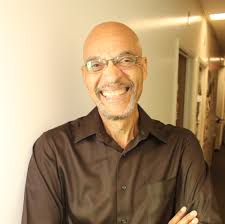In August 2007 Senator Barack Obama fresh on the presidential campaign trail made an impassioned promise at the Woodrow Wilson International Center for Scholars to wage what he dubbed the war that has to be won. The war is the war in Afghanistan. He promised to quickly get out of Iraq, corral America's allies in a partnership to wipe out the terrorists and their mass destructive weapons, end corruption, hold free elections, and insure a stable government in Afghanistan.
Two years later and a shell out of $230 billion dollars, and more than 700 US dead, not one of these goals have been met. There's absolutely no guarantee that the request of $65 billion more which is an amount bigger than the amount budgeted for Iraq; and the 17,000 more troops which will bring troop deployment in Afghanistan close to the number in Iraq that Obama will be any closer to attaining the goal of zapping Al Qaeda and installing a corruption free, democratic government there. Military analysts, Pentagon insiders, and the Joints Chiefs, agree that to attain anything faintly close to Obama's goals in Afghanistan will take a long hard slog that will cost billions more and take thousands more American troops (with increased casualties).
From his early speeches and now administration war policy set in stone Obama is doggedly convinced that the Afghan war can be won, no matter the cost. And he's willing to stake the credibility of his administration on that, no matter the price. The price is high. A mid-August Washington Post-ABC News poll found that more Americans than ever say the war is pure folly. A majority of Obama's most fervent backers say the same. These are the supporters who Obama will need to beat back the mounting GOP counterinsurgency against him, make gains or at least cut potential Democratic losses in the mid-term elections in 2010, and to vigorously pump his shaky health care reform package. With the grumbles from liberal Democrats and progressives getting louder about Obama's betrayal and backsliding on his campaign promises, Afghanistan looms even larger as Obama and the Democratic Party's Vietnam.
Vietnam is the dreaded word that presidents Lyndon Johnson, Bill Clinton, and Bush heard about Vietnam, Somalia, and Iraq. It's still the poster war for a failed, flawed, and hopelessly unwinnable war. The word has been a political tipping point for presidents. It soured public opinion, drained the economy, fueled public dismay and anger, hampered passage of their domestic programs, fractured their party, and stirred big losses in Congress.
Public shell shock over unpopular wars always redounds to the advantage of an incumbent challenging a president whose name is linked to the war. In 1952, Eisenhower ran on the pledge to visit Korea if elected. Though Ike never directly promised to bring the troops home if elected, the implicit commitment was that if elected he'd do that. He really didn't have to make that promise; public weariness over the war was so great that Ike's generic oath to visit the troops was enough to help sink Truman. In the public's mind the Korean War had become Truman's war, or more accurately Truman's failure to win the war.
Similarly, Nixon learned from Ike. During the presidential campaign against Democratic Vice-President Hubert Humphrey in 1968, Nixon dropped careful politically calculated hints of a ├ éČ┼"secret plan├ éČ Ł to end the Vietnam War if elected. Like Ike, he didn't spell out in any real detail just what his secret plan was. And like Ike, he didn't really have to. Public revulsion over Vietnam, as in Korea, was so great that even the scintilla of a suggestion that Nixon could end the war aroused voter optimism for him and even greater fury against Humphrey who was widely seen as the caretaker of Johnson's war (Johnson saw the handwriting on the wall and declined to run).
(Note: You can view every article as one long page if you sign up as an Advocate Member, or higher).




